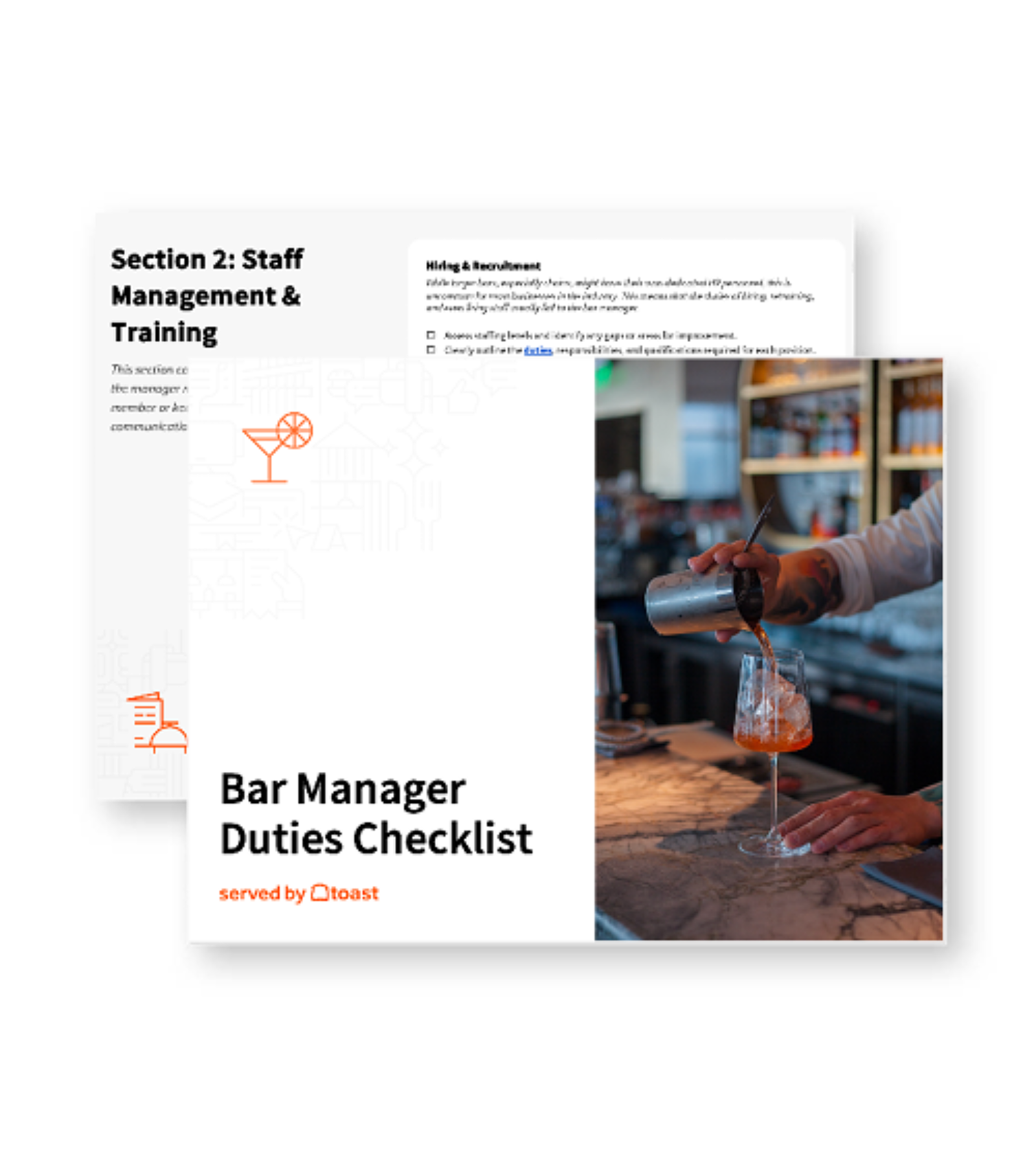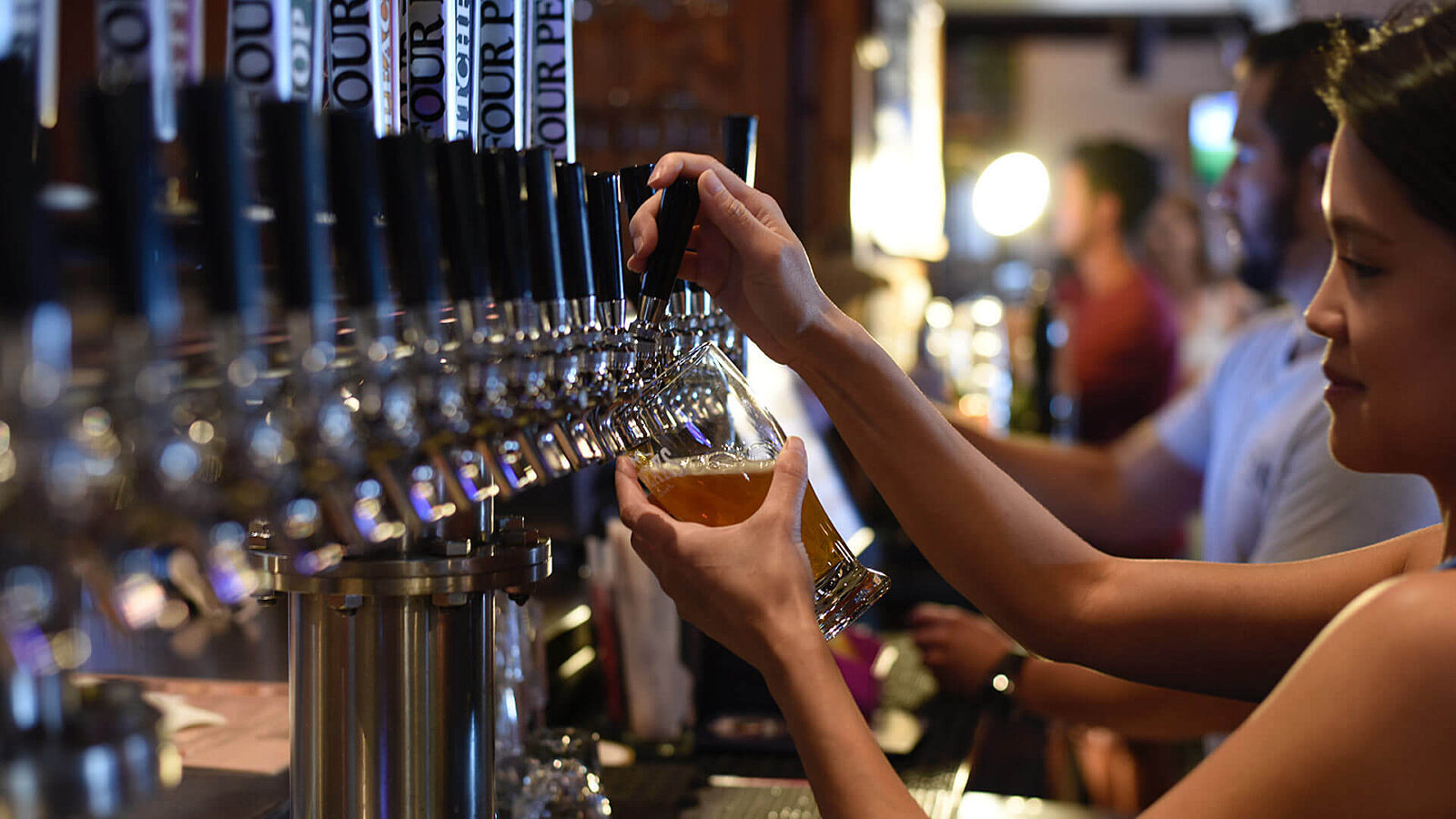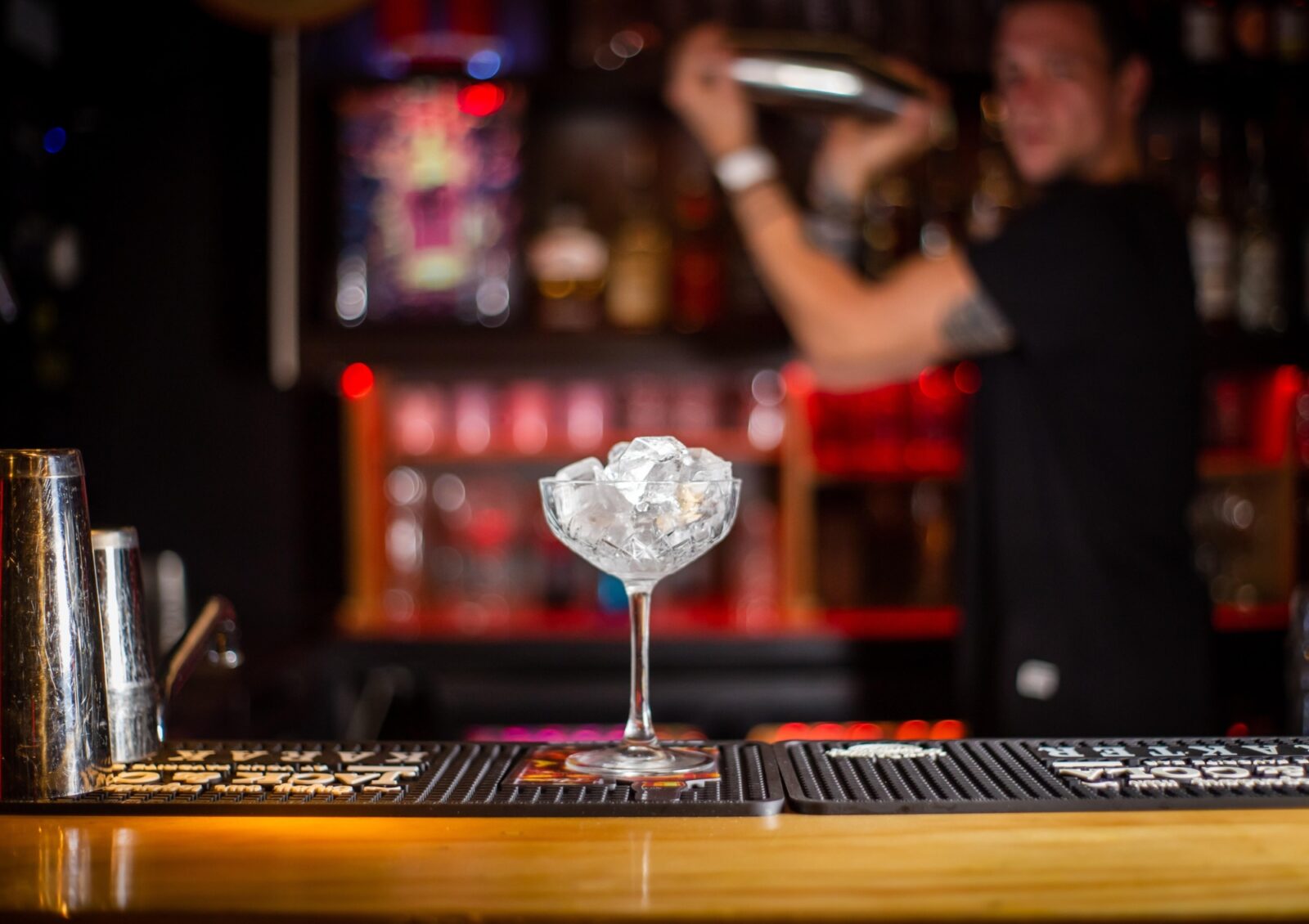
What is the Average Bartender Salary?
Learn about wages and understand the value for bartender skills, knowledge, and certifications.
Tyler MartinezAuthor


Bartender Training Checklist
Use this free Bartender Training Checklist to help streamline your training process and set your new bartenders up for success.
Bartenders serve alcoholic beverages–cocktails, spirits, wine, and beer–to customers in restaurants, bars, and nightclubs. The job is fast-paced and comes with a lot of responsibility to ensure that customers aren’t overserved.
Lots of bartenders learn the trade on the job, while others attend bartending courses to learn about mixing drinks. Bartenders can earn a good wage, but they also must grow accustomed to the highs and lows of working for tips.
How much do bartenders make?
The US national average for bartender earnings – the total pay before taxes – is $16,500 - $31,000 annually.
How Much Do Bartenders Make? (Average Bartenders Salary Data)
Bartenders earn an annual average of $16,500 and $31,000. The range of salaries is variable based on location and tips. Here’s how we got those averages:
- Salary.com reports bartender salaries from different job ads in the U.S. According to their research, the lowest 10% of earners make $16,851 annually, and the highest 10% earn $28,775, yielding a median salary of $22,418.
- The U.S. Bureau of Labor Statistics reports on data from tax documents. The range reported is significantly wider than Salary.com, from $17,870 to $47,710, and a median bartender salary of $26,350.
- BinWise.com averaged the salaries of bartenders from several popular online job boards. They report an average bartender salary of $26,094 in the U.S.
Since bartenders' earnings mostly come from tips, it’s difficult to compare wages. Do the research and talk to other bartenders in your area to find the right job for your skillset and experience. Compare your qualifications to those of your peers and set your expectations for earnings based on your research.
Factors that Influence Bartender Earnings
In most states in the U.S., bartenders earn a low minimum wage because they are tipped employees. That means that restaurants only have to pay the federal minimum wage.
Skills and experience are a good way to determine the kind of bar, restaurant, or nightclub you’re qualified to work in. The pressure on bartenders in many environments is high. They are expected to work quickly and efficiently to make tips.
The kind of bar, restaurant, or nightclub where you bartend influences your earning potential. The customer volume, drink prices, and the class of the bar are all factors that determine how much customers will tip.
At the end of the day, bartenders are salespeople. Different bars will have different expectations for bartenders. Some customers want quick service, while others like bartenders to be personable. Your personality and style of service influence how much you sell and how much you make in tips as a bartender.
Bartenders Must Learn to Embrace
Tipping Since bartenders rely on tips, their income varies from month to month and even from shift to shift. Being personable and efficient can help guarantee you keep your tips high.
Many restaurants implement tip sharing among bartenders to maintain equal compensation. Even so, the total volume of sales influences how much bartenders make each shift.
Other factors that influence bartenders’ income are shifts and seasons. Many restaurants, clubs, and bars have busier seasons than others. For example, people tend to go out, celebrate, and tip more generously around the holidays.
Additionally, bartenders who work the weekday lunch shift at a restaurant can’t expect to make the same tips as a bartender who works weekend evening shifts. Customers are more likely to purchase beer, wine, and cocktails in the evening or on the weekend.
How to Increase Earnings and Advance Your Career as a Bartender
Depending on the restaurant, you might start as a barback or table server to learn the ropes of the restaurant before becoming a full bartender. Working quickly and efficiently will show management and the other bartenders that you have the skills to move up to a full bartender position.
Increasing your earnings as a bartender is often about learning how to increase sales and keep customers happy. Knowing how to increase sales volume as a bartender can be tricky. Many bars and restaurants cater to regular customers–learning their tastes and their expectations can be a good way to increase tips.
Otherwise, the kind of restaurant or bar where you work significantly influences how much you can earn. High-end restaurants and bars with curated cocktails attract clients that can tip more. Many bartenders at casual restaurants and bars enjoy working with their customers - this personable approach to their work can increase tips as well.
Tips for Negotiating Higher Salary
Since bartenders earn tips, it’s not often that the hourly wages you earn from the restaurant or bar will have much effect on your income. In most cases, the bar or restaurant will start bartenders with the federal minimum wage for tipped workers. However, employers are required to pay bartenders at least minimum wage if they don’t earn it in tips.
Negotiating for a higher hourly wage as a bartender can be tricky. But, many restaurants and bars will reward consistent and quick performance behind the bar with an increase in hourly wage. Being prompt, efficient, and working to boost sales volume will show management your skills and dedication.
When entering salary negotiations, be ready to talk about specific instances of your skills and remind managers and owners of your sales. That way, they will be more willing to increase your hourly wage based on your performance behind the bar.
Work the Bar, Don’t Let the Bar Work You!
Bartenders are highly skilled, efficient, and knowledgeable about spirits, wine, and cocktails. They are also some of the best salespeople in the business. Hone your interpersonal skills and stay up to date on the hottest trends in cocktails, striving to deliver a high-quality experience to each customer.
This way, you can expect to be tipped well and keep owners and managers happy.
Related Resources
Is this article helpful?
DISCLAIMER: This information is provided for general informational purposes only, and publication does not constitute an endorsement. Toast does not warrant the accuracy or completeness of any information, text, graphics, links, or other items contained within this content. Toast does not guarantee you will achieve any specific results if you follow any advice herein. It may be advisable for you to consult with a professional such as a lawyer, accountant, or business advisor for advice specific to your situation.
Read More
Subscribe to On the Line
Sign up to get industry intel, advice, tools, and honest takes from real people tackling their restaurants’ greatest challenges.



